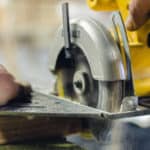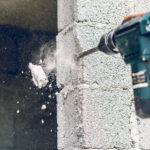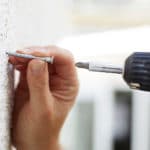Choosing the right cordless drill can be a difficult task. There are many things to consider when purchasing one, which is why you want to make sure you know what you’re looking for before buying anything.
This guide will help walk you through some of the key features of drills and give you 9 tips that will ensure that your next purchase is a good decision.
Tip 1: What Are You Going to Use the Drill For?
One of the first things that a person should consider when they’re looking into purchasing a cordless drill is what exactly they will be using it for. This can help narrow down your search and make sure you get something relevant to your needs, but also ensures that you get the right tool for the job.
It’s important to consider all of your options when you’re looking into drills but also keeping in mind that if this is a drill that you’ll be using on an everyday basis then it might make sense to invest more money and get something higher quality than what you would need for occasional use.
For people who are looking for something to help them with regular projects, getting a higher quality drill is definitely recommended since you’ll be using it more often and can get better results because of the power that comes from these types of drills.
Tip 2: Screw Driving Capacity
One of the most important factors to consider when buying a cordless drill is how much torque it has. This will let you know how powerful your drill will be and what types of materials it can handle. If this number seems low, then chances are that you’re looking at an entry-level model without many features.
Higher is generally better when it comes to torque. If you’re purchasing a cordless drill for small household projects, then anything in the range of 1720 – 2800 RPMs will suffice if the batteries are strong enough. For larger tasks with heavier materials, look at drills that can generate over 2000 pounds per square inch (PSI).
For smaller, lighter tasks that require less torque (ex. driving screws), you will want to make sure the drill has at least 450 inches per pound of rotational force (in/lbs). This number can be found in the specifications section of the cordless drills.
Tip 3: Choosing the Battery
The two most common types of batteries are nickel-cadmium (NiCad) and lithium-ion. Lithium-ion is more expensive, but it has a longer battery life which will save you money over time by not having to purchase new batteries every few months.
Tip 4: Voltage
Another thing you should look at is the voltage of your drill. Drills typically come in 12, 18, or 20 volts. When it comes to drills that are under $150 (excluding cordless screwdrivers), they’ll usually be around 18V – which is likely all you need for most projects.
Tip 5: Charge Time
Your charge time is also something to consider if your project requires a lot of work and will likely take multiple days. If that’s the case, then it might be worth paying more for a faster charger so you’re not waiting around.
Tip 6: Adjustable Speeds
When looking for the best cordless drill, you want to make sure that it has adjustable speeds so you can find one suitable for your job and the project at hand. Different projects require different types of drills with different speeds – from slow (for driving screws) to high speed (for drilling into wood and metal).
A drill with adjustable speeds means that you can choose the speed best suited for your project and then lock it in place so that you don’t have to keep changing the settings as you go. This is a very convenient feature because it will save time and frustration.
Tip 7: Weight of the Cordless Drill
Choosing the right cordless drill can be difficult, but you should also consider how heavy it will be before making your purchase. A drill with too much weight will be tiring to use for extended periods of time.
For example, if you are working on a big project outside or in your home that requires lots of drilling, then it may have been easier to complete the work with an electric drill instead because they’re lighter and more comfortable to hold.
The best cordless drills are those that weigh no more than seven pounds and offer a good grip, as well as tapered edges on both sides of the drill body for easy handling. This will give you better control over your movements and help to reduce any fatigue or stress on your arms during prolonged periods of use.
Lightweight drills make it easier to complete everyday tasks around the home and they’re a must if you have a large job to do.
Tip 8: Ergonomic Grip Design
Choosing the best drill is important, but you also need to make sure it’s comfortable to use and easy on your hands during prolonged periods of drilling work or metalwork. It should have an ergonomic grip design that enhances the control you have over your tool.
An ergonomically designed drill has a handle or grip with grooves and curves for better hand positioning, so it will be easier to hold onto as well as reduce any stress on your joints during use. There should also be a non-slip coating so the device won’t slip out of your grip during use.
Tip 9: Keyless Chuck
Look out for drills that have a keyless chuck, which makes it easier to change the drill bit. A good cordless drill should be easy to use and handle with no effort on your part – especially if you’re going to be using it to complete a big project.
One of the main features you should look out for is a keyless chuck, which allows you to change the drill bit quickly and easily without any tools such as adjustable wrenches or screwdrivers that could otherwise damage your cordless power drill.
A keyless chuck makes changing bits easy because all you need to do is pull the collar back, twist it to tighten or loosen your bit and release. It doesn’t cause any damage to your power drill because there aren’t any tools required.
Conclusion
We hope this guide has helped you understand the different types of drills available, what to look for in a cordless drill and how to make sure your next purchase is one that will last.
Check out our blog post on the 10 Best 20v Cordless Drills if you need more help deciding which drill would work best for you.




